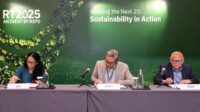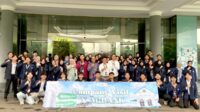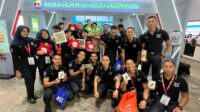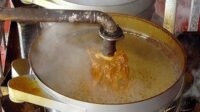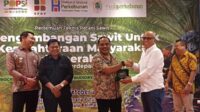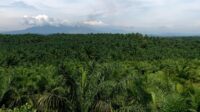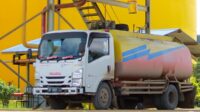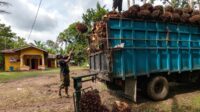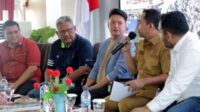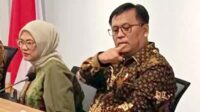PALMOILMAGAZINE, BANJARBARU — The Provincial Government of South Kalimantan continues to strengthen its position as a pioneer in advancing sustainable palm oil development in Indonesia. Through strategic policies and integrated programs, the province—known as Bumi Lambung Mangkurat—has reaffirmed its commitment to balancing economic, social, and environmental interests in palm oil governance.
This commitment is formalized through the issuance of Governor Regulation No. 13/2023 on the Regional Action Plan for Sustainable Palm Oil Plantations (RAN-KSB) 2022–2024, which serves as a guiding framework for all stakeholders in the province’s palm oil sector.
“We want to ensure that every activity in the palm oil sector operates within the framework of sustainability—from planning and production to environmental management—all oriented toward long-term welfare,” said Suparmi, Head of the Plantation and Livestock Agency of South Kalimantan Province, in a statement to beige-heron-208544.hostingersite.com on Sunday (Oct 26, 2025).
Also Read:
According to Suparmi, the provincial government focuses on four key pillars: strengthening data and infrastructure, improving smallholder capacity, boosting productivity, and implementing transparent and accountable governance. “We are also accelerating ISPO certification so that the entire palm oil value chain in South Kalimantan complies with national sustainability standards,” she added.
Currently, South Kalimantan’s palm oil plantation area spans 506,269 hectares, managed by 85 private and state-owned companies, along with 46 palm oil mills. The province produces approximately 5.89 million tons of fresh fruit bunches (FFB) annually, generating around 1.29 million tons of crude palm oil (CPO) per year.
Beyond upstream production, downstream palm oil industries have also seen rapid growth. The province hosts three cooking oil factories with a combined capacity of 5,750 tons per day and two biodiesel plants with a total capacity of 2,500 tons per day. The palm oil sector employs over 72,000 workers, a number projected to rise as downstream industries and palm–cattle integration programs expand.
“The palm oil industry is not only about production but also about empowering the people within it. That’s why we prioritize human capital development through the Palm Oil Plantation Human Resources Development Program (PSDMPKS), funded by the Plantation Fund Management Agency (BPDP),” Suparmi explained.
Also Read: Indonesia Expands Palm Oil Product Exports to Chile and Peru Under CEPA
The program includes technical training, public education, and scholarship opportunities for families of palm oil workers, all aimed at building a professional, inclusive, and globally competitive workforce.
The South Kalimantan government is also strengthening collaboration with various stakeholders, including the Indonesian Palm Oil Association (GAPKI) South Kalimantan Chapter, to address key issues such as labor protection, supply chain sustainability, and smallholder inclusion.
“Our goal is for the palm oil sector to bring not only economic benefits but also tangible improvements in community welfare,” Suparmi emphasized.
Through these efforts, South Kalimantan is paving the way toward a sustainable palm oil development model that balances productivity, social equity, and environmental preservation.
“Our aspiration is for South Kalimantan to serve as a model for other provinces in building a palm oil industry that is competitive, fair, and environmentally responsible,” Suparmi concluded. (P2)







